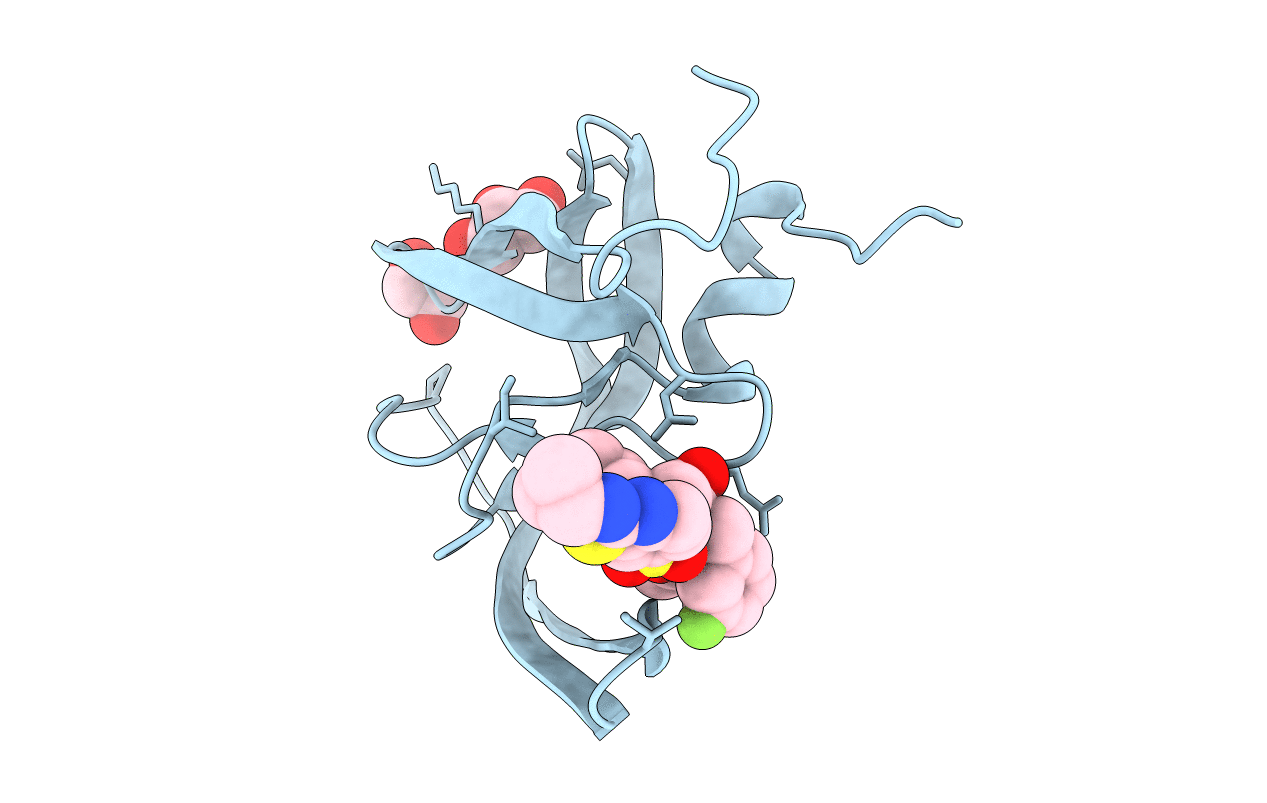
Deposition Date
2019-04-03
Release Date
2020-04-08
Last Version Date
2023-10-11
Entry Detail
PDB ID:
6OGT
Keywords:
Title:
X-ray crystal structure of darunavir-resistant HIV-1 protease (P51) in complex with GRL-001
Biological Source:
Source Organism(s):
Human immunodeficiency virus 1 (Taxon ID: 11676)
Expression System(s):
Method Details:
Experimental Method:
Resolution:
1.21 Å
R-Value Free:
0.20
R-Value Work:
0.19
R-Value Observed:
0.19
Space Group:
P 61 2 2


